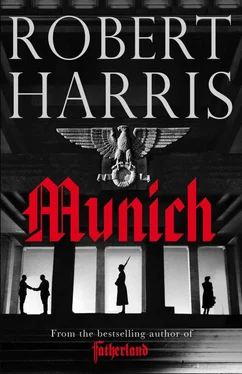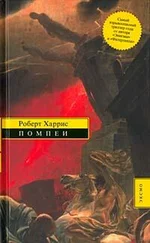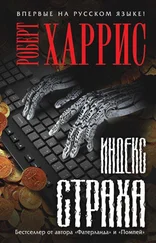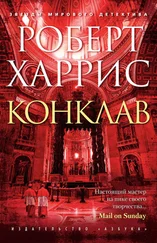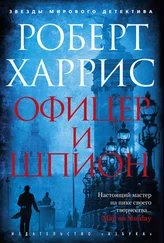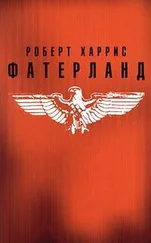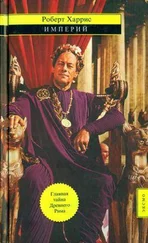They drove on to a bridge with a stone balustrade. The river was wide and green, the strip of trees along the embankment an advancing line of fire: red, gold, orange. The sun lit the gilded figure of the Angel of Peace leaning forwards on top of her high stone column. Beyond the monument the road looped through a park. Emerging, they began to climb the slope of Prinzregentenstrasse. Legat had always pictured it as steep, in the way that one misremembers scenes from childhood, but now in a powerful car it seemed no more than a gentle incline. They passed a theatre on the right and suddenly they were in the space in front of Hitler’s apartment, and this at least was exactly as he had carried it in his mind, right down to the crowd on the pavement who recognised Chamberlain and started to cheer. Again, the Prime Minister, in his mystic state, didn’t even glance across at them. The guards saluted and an adjutant stepped forward to open the car door.
Legat let himself out and followed Chamberlain and Dunglass through the entrance and up the steps into the gloomy interior.
The adjutant ushered the Prime Minister into a small caged elevator and pressed the button, but it failed to move. He tried for another half-minute, his handsome young face turning blotchy with embarrassment. Finally, he had to pull open the gate and indicate they should proceed on foot. Legat fell in beside Dunglass as they climbed the stairs behind Chamberlain. Dunglass whispered, ‘No ink last night, hardly any telephones that work. I don’t think these chaps are quite as efficient as they like to make out.’
Legat was praying that Hartmann would be there. He was not sure what he could offer God in return, but it would be something, he promised Him — a different life, a fresh start, a gesture equal to the age. They arrived at the second floor. The adjutant opened the door to the apartment, and there — mirabile dictu — was Hartmann, sitting with his long legs stretched out. Beside him Legat recognised Hitler’s translator. They both stood when they saw Chamberlain. Hartmann stared at Legat but there was no opportunity for anything more than a glance to pass between them: the adjutant was insisting Legat follow Chamberlain and Dunglass across the hall and into the room opposite. He told Schmidt to come, too. Hartmann made a move to accompany them but the adjutant shook his head. ‘Not you. Wait here.’
For a few seconds Hartmann stood alone in the empty lobby. Legat’s brief glance had been full of warning. Something else must have happened. He wondered if he should slip away while he still had the chance. Then he heard a door open to his right and he turned to see Hitler emerging from a room at the far end of the corridor. He was smoothing his hair and straightening his brown Party jacket, checking his armband — fussy, last-minute adjustments, like an actor preparing to go on stage. Hartmann jumped to his feet and saluted. ‘ Heil Hitler! ’
Hitler looked at him and raised his hand in absent-minded acknowledgement but gave no sign of recognition. He stepped into the room in which the others were waiting and the door was closed behind him.
Afterwards, Legat would be able to claim — not boast: that was never his style — that he had been in the same room as Hitler on three separate occasions, twice at the Führerbau and once in his apartment. But, like most of the British eyewitnesses at Munich, he was never able to provide anything more than the most commonplace description — Hitler looked as he looked in the photographs and the newsreels, except in colour, and the main shock of the encounter lay simply in finding oneself in proximity to a world-famous phenomenon, like seeing the Empire State Building or Red Square for the first time. One detail stuck in his mind, though. Hitler smelled strongly of sweat — he had detected it in his study and caught a whiff of it now as he passed. He had the body odour of a frontline soldier or a workman who had not bathed or changed his shirt for a week. He was yet again in a dour mood and made no attempt to hide it. He stalked in, greeted Chamberlain, ignored everyone else, then went and sat in the furthest corner of the room and waited for his visitor to join him.
The Prime Minister took the armchair to his right. Schmidt sat on his left. The adjutant stationed himself by the door. It was a big room, running almost the entire length of the apartment, looking out on to the street, and furnished in modern style, like a salon aboard a luxury liner. There was a library alcove at the far end, crammed with books, where Hitler and Chamberlain were sitting; an area of sofas and chairs in the middle, where Legat and Dunglass had perched themselves; and a dining table at the opposite end. Legat was close enough to hear what was said but far enough distant not to impinge on the conversation. However, because Hitler was in the corner, it was impossible for him to obey the Prime Minister’s instruction and entirely escape the dictator’s eye line, and from time to time he noticed those strangely opaque blue eyes flicker in his direction, as if he was trying to work out why these two strangers were present in his flat. There was no offer of refreshment.
Chamberlain cleared his throat. ‘First of all, I would like to thank you, Chancellor, for inviting me to your home and for agreeing to hold one final conversation before I return to London.’
Schmidt translated faithfully. Hitler was sitting slightly propped forward by a cushion. He listened, nodded politely. ‘ Ja. ’
‘I thought we might briefly discuss some areas of mutual interest between our two countries on which we might be able to co-operate in the future.’
More nodding. ‘ Ja. ’
The Prime Minister reached into his jacket pocket and took out a small notepad. From his inside pocket he produced his fountain pen. Hitler watched him warily. Chamberlain opened the first page. ‘Perhaps we might begin with this terrible civil war in Spain...’
Almost all the talking was done by Chamberlain: Spain, Eastern Europe, trade, disarmament — he ticked off the list of topics he wished to raise and to each Hitler responded briefly, without being drawn into detail. ‘That is a matter of vital interest to Germany,’ was the most he would say. Or, ‘Our experts have made a study of the subject.’ He fidgeted in his chair, folded and refolded his arms, looked over at his adjutant. Legat thought he was like a householder who had agreed in a moment of weakness to let a salesman or a religious proselytiser over the threshold, bitterly regretted it, and was looking for an opportunity to get rid of him. Legat himself kept glancing at the door, trying to calculate how he might be able to escape long enough to whisper a warning to Hartmann.
Even Chamberlain seemed to detect that his audience was becoming distracted. He said, ‘I realise how busy you are. I mustn’t detain you further. What I wish to say in conclusion is this. As I left London yesterday morning, women and children and even babies were being fitted with masks to protect them against the horrors of poison gas. I hope, Herr Chancellor, that you and I can agree that modern warfare, the brunt of which will be directed as never before against ordinary civilians, is abhorrent to all civilised nations.’
‘ Ja, ja. ’
‘I believe it would be a pity if my visit passed off with nothing more than the settlement of the Czech question. In that spirit, I have drafted a short statement putting on record our mutual desire to establish a new era in Anglo — German relations that may bring stability to the whole of Europe. I would like us both to sign it.’
Schmidt translated. When he came to the word ‘statement’ Legat saw Hitler dart a look of suspicion at Chamberlain. The Prime Minister drew the two copies from his inside pocket. He handed one to Schmidt. ‘Perhaps you would be kind enough to translate this for the Chancellor.’
Читать дальше
